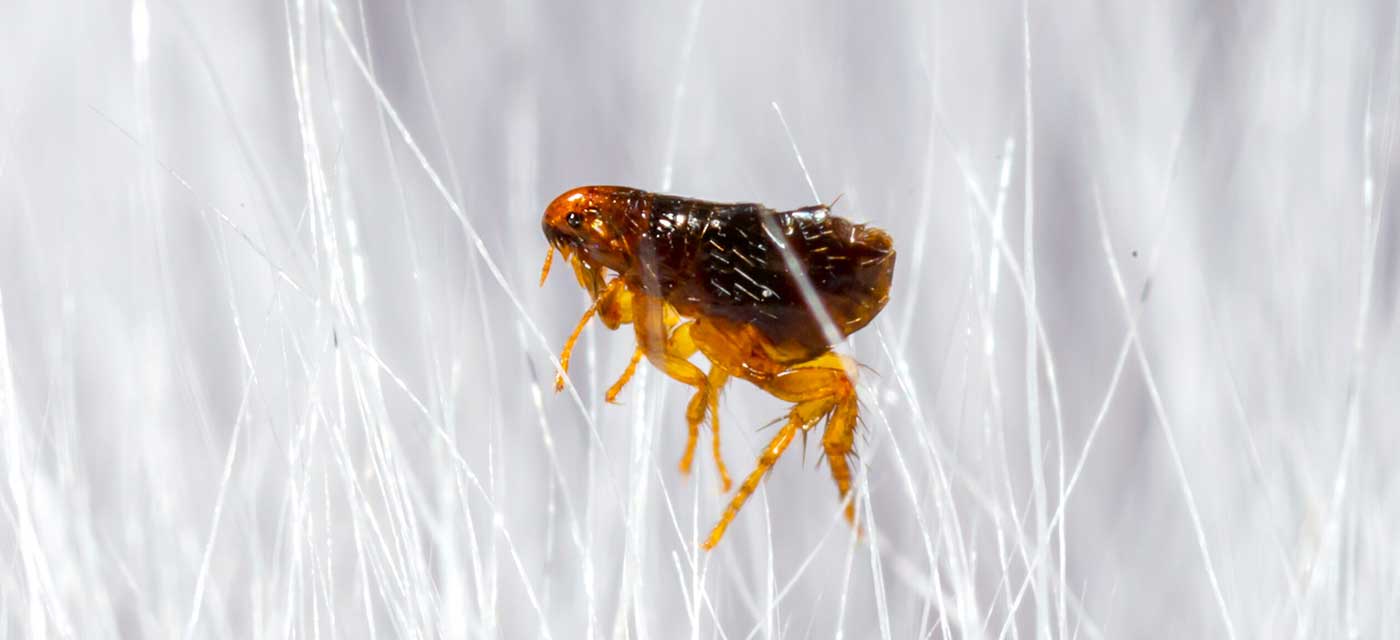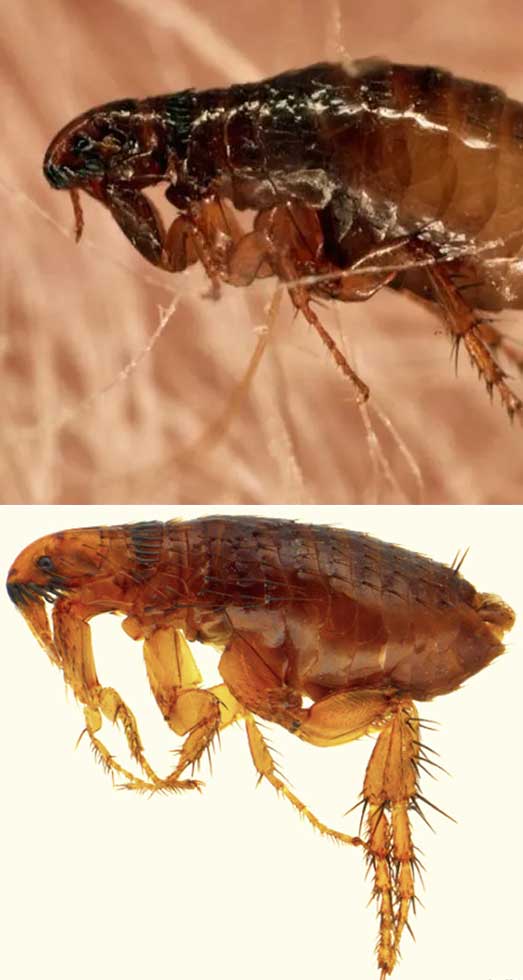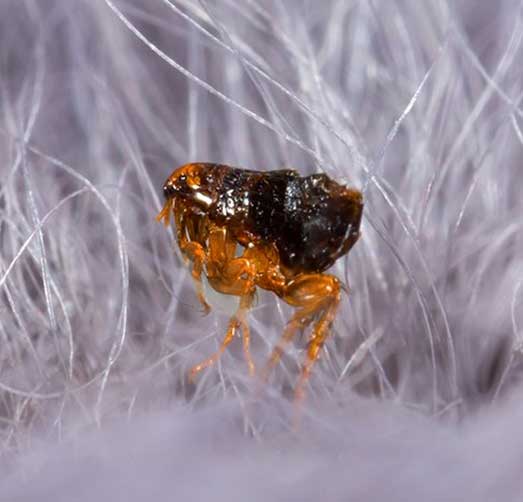
Effective Local Flea Treatment Services Near You - Hire Local Pest Control Expert Today
Dealing with a flea infestation in your home or on your pets? With ServiceTasker, finding trusted and local flea treatment services near you is simple and stress-free. We connect you with certified flea pest control experts who specialize in both home and pet treatments. Whether you're looking for flea and tick treatments for dogs, flea larvae control, or flea worming solutions, our professionals have you covered.
For urgent situations, our Emergency Pest Control Services Nearby provide rapid response to eliminate fleas, ticks, and other pests effectively. From advanced options like NexGard Spectra to comprehensive tick and worm treatments, these specialists ensure your pets stay healthy and your home remains pest-free. ServiceTasker is your go-to platform for safe, effective, and fast flea pest control near me. Protect your pets, family, and home today.
Need Fast & Reliable Flea Control Experts Near You?
Get free quotes from verified local experts in minutes — It’s Quick & Fast!
Choose From the Finest Flea Control Experts Near You
Your Future Flea Control Experts Hero Is Just One Task Away — Let’s Find Them
Rated 0 Stars for Flea Control Experts Serving Australia-Wide
Backed by customer reviews via ServiceTasker.
Flea Control Experts Genuine Reviews
Browse feedback from customers who hired Flea Control Experts through ServiceTasker. We feature reviews verified by Google and Facebook to help you select the right tradie with confidence.
Very reasonable price, fact efficient and friendly service.
1 month agoPrice was reasonable and on time happy with the results
5 months agoHe was so helpful and obliging. No task was too big, he did it all with a smile very humble and friendly individual.
5 months agoPest control - fantastic. Rang on weekend expecting delay till weekday. Weekend service was available for same price, had inside and outside treated. Good explanation of service and prices. Prompt, ea...
6 months agoLachlan was excellent. He arrived on time, had the right equipment and did a fabulous job. I would highly recommend him.
6 months agoPrompt service to help eradicate a large wasp nest in my garden. Successful …. I hope !!
7 months agoI was very impressed with the service provided, very reliable and very thorough. Highly recommended .
8 months agoReally appreciate the work done by them and detailing they have done.
9 months agoQuick , job well done bloke was friendly and price was fair
9 months agoWhat's the average cost of an flea control experts


Emergency Pest Control Experts For Easy And Effective Flea Control Solutions
Flea infestations can turn your cozy home into an itchy battleground. It affects your beloved pets and your family's well-being. If you're in Australia and worried about getting the Same Day Flea Treatment, then you are on the right platform. Post your query, and we will help you get three quotes from the Flea Removal team for your ultimate solution. We will help you to get an easy solution for your Flea Extermination of your property. Post your issue and find the right team for Emergency Flea Control. Get rid of these tiny, troublesome pests today!
Challenges Posed By Fleas
Fleas can pose various challenges, particularly when they infest homes, pets, or outdoor areas. Here are some of the challenges posed by fleas:
- Itching and Discomfort: Flea bites can cause itching and discomfort for both humans and animals. Pets may scratch excessively, leading to skin irritation and potential secondary infections.
- Allergic Reactions: Some individuals and animals may be allergic to flea saliva, leading to more severe reactions such as rash, hives, or even anaphylaxis in extreme cases.
- Disease Transmission: Fleas can transmit diseases such as murine typhus and bubonic plague, although these occurrences are rare. Fleas can also transmit tapeworms to pets.
- Anemia in Pets: Flea infestations can cause anemia in pets, especially in young or small animals. Fleas feed on blood, and severe infestations can lead to significant blood loss.
- Pet Stress and Behavioral Issues: Constant itching and discomfort from flea bites can lead to stress in pets. This stress may result in behavioural issues, such as increased aggression or lethargy.
- Difficult Eradication: Fleas have a rapid life cycle, and their eggs, larvae, and pupae can be challenging to eliminate. Failure to target all stages of the flea life cycle can lead to persistent infestations.
- Environmental Infestations: Flea eggs can be present in carpets, furniture, and outdoor areas. This makes it difficult to completely eradicate fleas, as they may reinfest pets and living spaces.
- Resilience to Weather Conditions: Fleas can survive in various weather conditions, making it possible for infestations to persist even in colder or hotter climates.
- Resistance to Pesticides: Some flea populations may develop resistance to certain pesticides, making it challenging to control them effectively. This resistance can result from overuse or misuse of insecticides.
- Zoonotic Potential: While uncommon, some fleas can transmit diseases from animals to humans. It is crucial to address flea infestations promptly to minimize the risk of zoonotic transmission.

Importance of Professional Flea Control Service
Fleas multiply rapidly. Therefore, a small infestation can quickly escalate into a major problem if not addressed promptly. Immediate action is crucial to prevent further spread and protect your home, pets, and family from the consequences of a full-blown flea infestation.
Step-by-Step Guide to Flea Control
- Assessment of the Infestation: The first step in flea control is a thorough infestation assessment. Pest control professionals will inspect your home. They will identify the extent of the infestation, and determine the specific type of fleas present.
- Treatment Plan: Based on the assessment, a customized treatment plan will be developed to target the fleas effectively. This may involve treating pets, using insecticides in specific areas, and implementing preventive measures to avoid future infestations.
- Professional Application of Treatment: Certified pest control experts will precisely apply the chosen treatment. Their expertise ensures that the process is safe for your family and pets while effectively eliminating fleas from your home.
- Follow-up Inspections: After the initial treatment, follow-up inspections are crucial to ensure the success of the flea control measures. It allows you to evaluate for additional treatments if necessary.
Certified Experts for Effective Flea Removal
Role of Certification in Flea Control
Certified pest control experts bring a wealth of specialized knowledge and skills to the table. Hence, he ensures that the removal process is not only effective but also conducted with the highest standards of safety and expertise.
Expertise Beyond Conventional Knowledge
Certification in flea control signifies a level of expertise that goes beyond conventional pest management. These professionals have undergone training, equipping them with in-depth knowledge of flea biology, behaviour, and the latest advancements in pest control technology.
Tailored Solutions
Flea infestations vary in their severity and characteristics. Certified experts possess the ability to tailor their approach based on the specific needs of your home. Their certification ensures a nuanced understanding of different flea species and the most effective strategies for their removal.
Safety Standards
When it comes to your family, pets, and home, safety is paramount. Certified pest control experts adhere to strict safety standards. The usage of environmentally friendly and pet-safe products to eradicate fleas is vital.
Complete Evaluation and Planning
The detailed assessment allows them to formulate a targeted and efficient flea removal plan, ensuring a higher likelihood of success.
Continuous Training and Skill Development:
Certified professionals are committed to continuous training and skill development to stay abreast of the latest trends, technologies, and environmentally friendly approaches in flea control.
Flea removal requires specialised knowledge and skills to ensure the safety of your home, pets, and family. Hiring certified Flea Removal experts possess the necessary training and expertise to handle flea infestations effectively.
Your Future Flea Control Experts Hero Is Just One Task Away — Let’s Find Them
Tips and Tricks for Pet Owners
Pet owners often find themselves on the frontline of the battle against fleas. These tiny pests can make life uncomfortable for your pets. Hence, they pose a threat to the overall well-being of your household. Here are some practical tips and tricks to help pet owners deal with flea infestations effectively:
Regular Grooming
Grooming is a key aspect of flea prevention. Regular baths, brushing, and combing help keep your pet's coat clean and reduce the risk of flea infestations. Use pet-friendly shampoos and grooming tools to ensure your furry friend stays clean and comfortable.
Veterinary Guidance
Your veterinarian is a valuable resource in the fight against fleas. Consult with them regularly to discuss preventive measures, suitable flea control products, and any signs of infestation. Your vet can recommend the best course of action based on your pet's health and lifestyle.
Flea Prevention Products
Invest in high-quality flea prevention products recommended by your veterinarian. These may include topical treatments, oral medications, or flea collars. Choose products suitable for your pet's size, age, and health condition, and follow the recommended application guidelines.
Environmental Cleaning
Fleas don't just live on your pets; they also infest the environment. Regularly vacuum your home, focusing on areas where your pet spends most of its time. Wash your pet's bedding, toys, and any other items they come in contact with regularly to eliminate flea eggs, larvae, and pupae.
Yard Maintenance
If your pet spends time outdoors, pay attention to your yard as well. Keep the grass short, trim bushes, and remove any debris where fleas might thrive. Consider using pet-safe outdoor flea control products to create a barrier against these pests.
Natural Remedies
Explore natural remedies that can complement traditional flea control methods. Some pet owners find success with ingredients like diatomaceous earth, essential oils (such as lavender or neem oil), or herbal flea collars. However, always consult with your veterinarian before using any natural remedies to ensure they are safe for your pet.
Regular Health Checks
Monitor your pet's health regularly and be vigilant for signs of flea infestations. Excessive scratching, redness, or tiny black specks in the fur (flea dirt) are indicators that your pet may have fleas. Early detection allows for prompt action to prevent the infestation from spreading.
Treat the Whole Household
Fleas can move between pets and even infest different areas of your home. When treating one pet for fleas, consider treating all pets in the household simultaneously. Additionally, extend flea control measures to your living spaces to ensure a comprehensive approach.
Professional Assistance
If your pet experiences a severe flea infestation, or if your efforts at home prove insufficient, consider seeking professional help from Flea Removal Near Me. Post your task on this platform, we will connect you with certified pest control experts who specialize in flea removal. These professionals can assess the extent of the infestation and provide targeted solutions.
Consistency is Key
Flea control is an ongoing process. Consistency in preventive measures and regular monitoring of your pet's health and living spaces are crucial to maintaining a flea-free environment. Stay proactive, and your efforts will contribute to the well-being of both your pet and your household.
By implementing these tips and tricks, pet owners can significantly reduce the risk of flea infestations and create a comfortable, pest-free environment for their pets. Remember, a combination of preventive measures, regular veterinary care, and timely intervention will ensure a happy and healthy life for your pets.
Find A Flea Controller Now!
If you are dealing with a flea infestation and are actively searching for Flea Removal Experts, post your job on this platform. We will help you to explore and find reliable experts. We connect you with top-rated pest control experts who specialise in same-day flea control, ensuring a swift and effective resolution to your pest problems.
Still Looking?
Let ServiceTasker connect you with the best Flea Control Experts near you — safe, trusted, and affordable.
Recent Job Listings and Hires in the Flea Control Experts
Answers to Your Common Questions
Professional flea treatment is necessary to effectively eliminate fleas from your home, ensuring the safety and comfort of your family and pets. DIY methods may not provide long-term solutions.
Yes, most flea treatment professionals use pet-safe and family-friendly products. They will ensure that the treatment is effective against fleas while keeping your loved ones and pets safe.
The time it takes to see results can vary depending on the extent of the infestation. Typically, you should start seeing a significant reduction in fleas within a few days after treatment.
In most cases, you and your pets may need to leave your home temporarily during the flea treatment process. Your flea treatment expert will provide guidance on safety measures and when it's safe to return.



